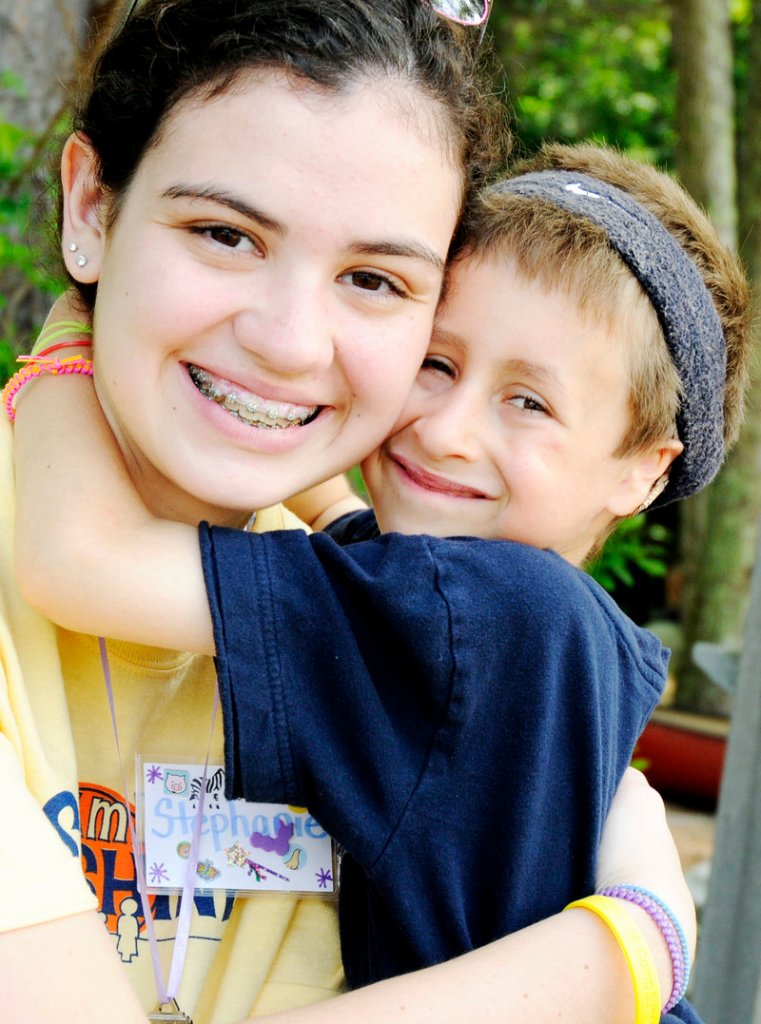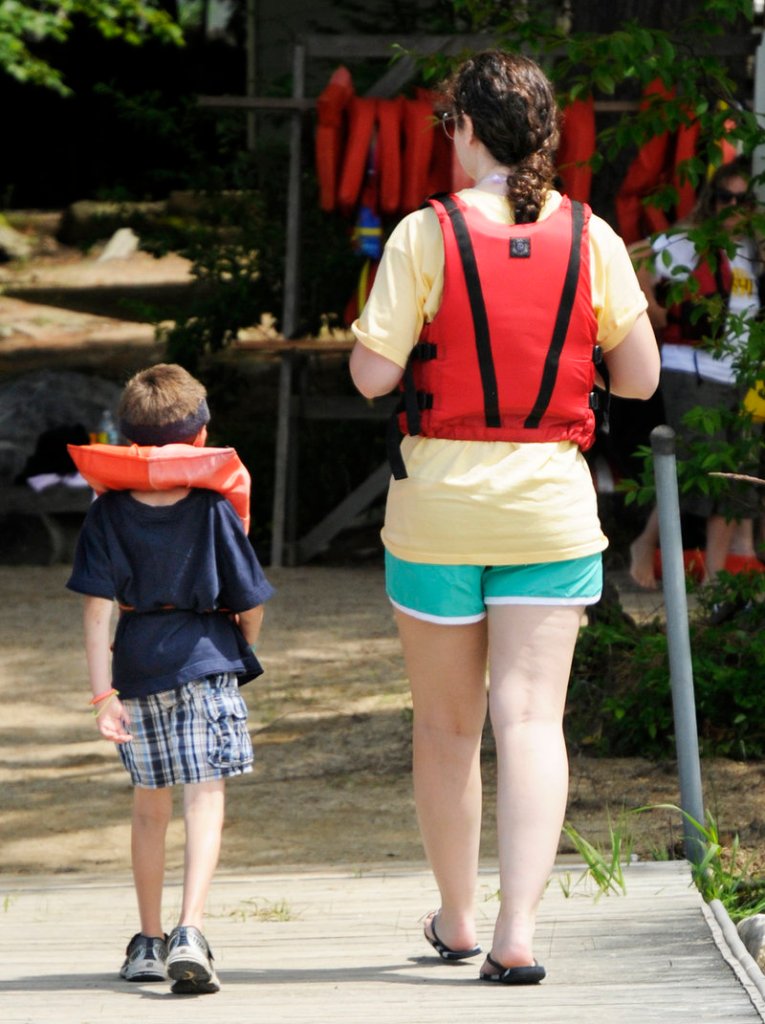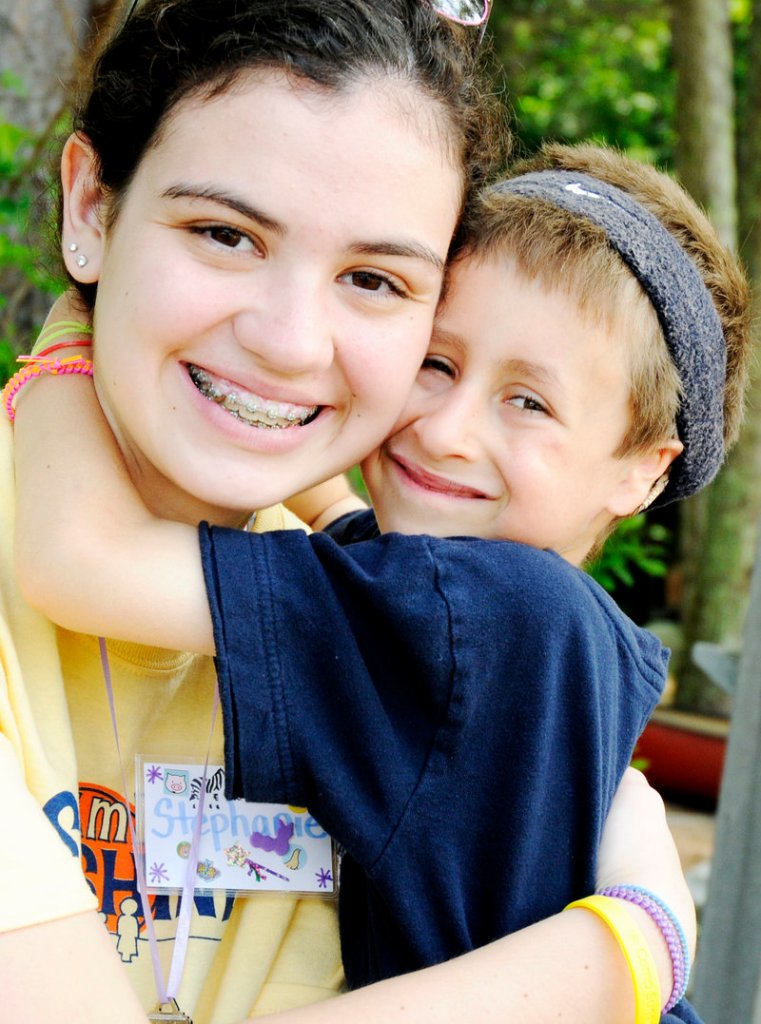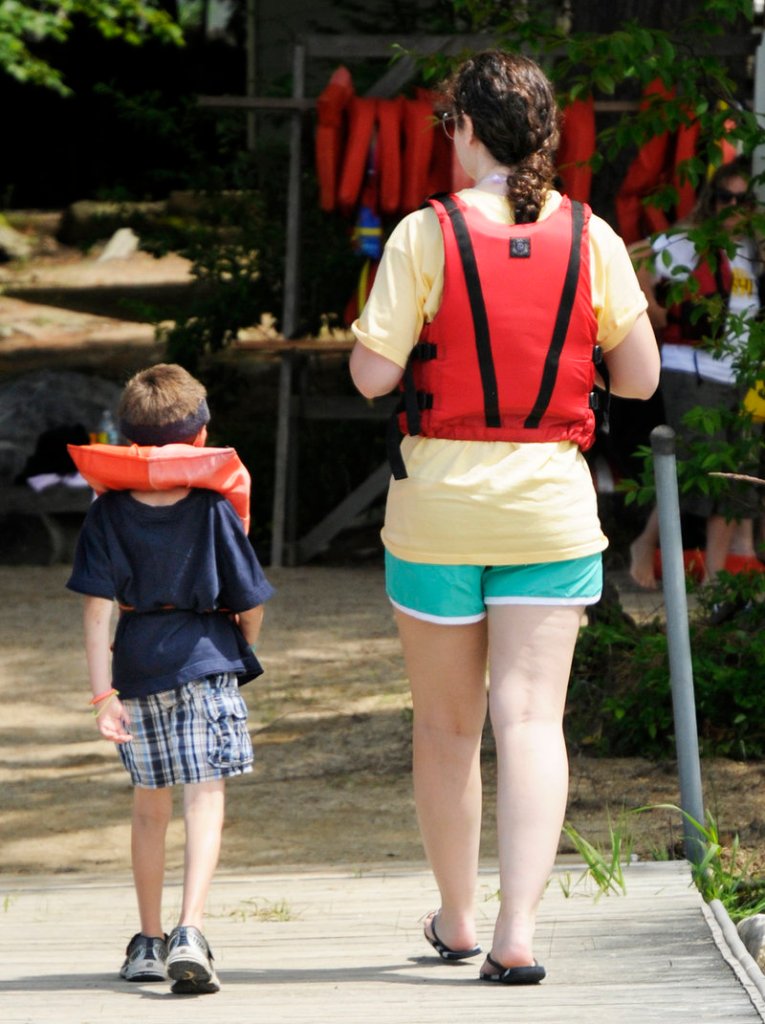CASCO – One of the first things Kristin Young learned after her 1-year-old son was diagnosed with Fanconi anemia was that the life-threatening blood disorder affects only one in 350,000 people.
Chances were, she would never meet anyone who was going through what her family was experiencing.
“I felt very alone,” Young said, pausing for a moment.
“And then you come to Camp Sunshine.”
Young and her family are finishing a six-day stay at the secluded camp on the north shore of Sebago Lake with about 50 other families who are coping with Fanconi anemia, known here simply as FA.
While the families have come from all over the United States and countries such as Germany, Denmark and England, the Youngs are from Gorham, just across the lake.
Kristin Young’s son, Wesley, is now 7, and is one of two Maine children with FA who are at the camp.
This is the 20th year in which children with Fanconi anemia and their families have spent a week on the shore of Sebago Lake. It’s the seventh summer for the Youngs. Wesley has been coming since he was 1.
“He owns Camp Sunshine, if you ask him,” Kristin Young said. “There is nothing like this place.”
Camp Sunshine has programs all summer for children with life-threatening diseases and their families. One week might be for children with brain tumors, another for children in treatment for other cancers.
The camp has programs for children with other rare bone marrow disorders, although those programs haven’t been going as long as FA week.
The campers, their siblings and their parents attend for free and enjoy Camp Sunshine’s beach, kayaks, archery range, ropes course and other traditional camp activities.
There also are special programs just for parents, including support sessions and an adults-only gourmet dinner.
Sponsors pay the cost — about $1,500 a week for a family — and about 100 volunteers come to the camp each week to work as counselors. Like the families, many of the volunteers come back year after year.
FA week is extra special at Camp Sunshine.
Because the disease is so rare, no families are turned away, even if the camp has to put up some of them next door at the Point Sebago Resort. Volunteer slots for the week fill up in February.
On Tuesday, Wesley and his 8-year-old sister, Quinn, played at the camp’s beach, making sand castles with other campers and filling a moat with lake water.
Wesley also spent time getting to know some of the teenage counselors.
“What’s your favorite sport?” he asked Stephanie Reeves, a counselor, as the two of them sat on swings.
“I don’t know, is dancing a sport?” Reeves replied.
“No,” he said.
“What’s your favorite sport?” Reeves asked him.
“Basketball.”
Anna Gould, who co-founded the camp 26 years ago, said, “It’s nice to see the kids from year to year,” and to see advances in medical treatment for the disorder.
Years ago, Gould said, “you never saw kids older than 14 or 15. Now, we see kids who are in their 20s, getting engaged, getting married.”
FA is inherited from two parents who carry a recessive gene and have no symptoms. There are an estimated 500 patients in the United States and about 3,000 worldwide.
FA causes birth defects such as missing or misshapen thumbs, and prevents bone marrow from making enough new blood cells for the body to work normally.
Bone marrow transplants can extend patients’ lives, but the patients remain at high risk for leukemia and other cancers.
The average life expectancy for someone with FA is now 20 to 30 years.
Along with supporting families, Camp Sunshine is playing a role in the medical advances.
Researchers from around the world come to the camp each summer.
They give presentations to parents about the latest research and emerging treatments.
And they collect blood samples from the children for studies that could lead to new breakthroughs.
For the families, the week at Camp Sunshine has become an annual, and emotional, reunion.
Kristin Young said she now stays in touch with families all over the world, offering support through successful transplants and, sometimes, through the grief of a lost child.
And she always looks forward to coming back.
“We’re always here for each other,” she said.
Staff Writer John Richardson can be contacted at 791-6324 or at: jrichardson@pressherald.com
Send questions/comments to the editors.






Success. Please wait for the page to reload. If the page does not reload within 5 seconds, please refresh the page.
Enter your email and password to access comments.
Hi, to comment on stories you must . This profile is in addition to your subscription and website login.
Already have a commenting profile? .
Invalid username/password.
Please check your email to confirm and complete your registration.
Only subscribers are eligible to post comments. Please subscribe or login first for digital access. Here’s why.
Use the form below to reset your password. When you've submitted your account email, we will send an email with a reset code.